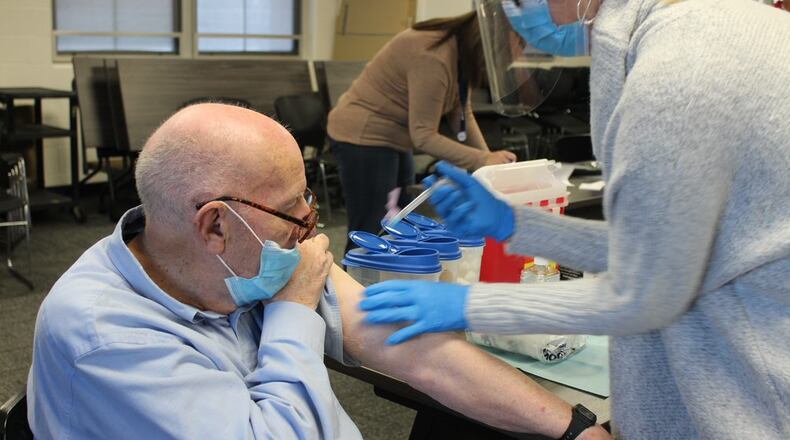Frederick said the board produced “simple language” brochures to provide the best information available to those considering the vaccine. She said the board arranged to schedule vaccines in the proper locations, depending on where the clients lived.
“We wanted to get them in the right place as fast as we could,” Frederick said.
The process worked because Butler County boasts the greatest vaccination rate among people with developmental disabilities in the state, according to statistics released Monday by the Ohio Department of Developmental Disabilities.
In Butler County, 89% of people over 12 with a developmental disability are fully vaccinated against COVID-19, followed by Summit and Monroe counties (67%). Holmes County’s vaccination rate for this population is the lowest at 35%, according to the state. .
It was important to vaccinate this population to allow them to return to their day programs, community employment or their residences, typically shared with three or four people, Frederick said.
Frederick called the vaccinations “a lifesaver” due to some people with developmental disabilities being medically compromised.
She said clinics were conducted in their buildings, at the three health departments in the county, at the Butler County Fairgrounds, local fire departments, and residences for those who were home-bound.
“It was an incredible experience for us,” she said. “It was like a machine that kept going.”
The first vaccine to someone with developmental disabilities was administered on Jan. 3, 2021 when Middletown Health Commissioner Jackie Phillips, who also sits on the board at the Butler County Board of Developmental Disabilities, visited Ray Back and Vickie West in their Middletown home.
Lisa Guliano, superintendent of the board, said she was “truly thankful” for all the hard work from local health departments to get the vaccines out so people like Back and West “no longer have to live in fear.”
On Monday, for the first time in more than two weeks, Ohio’s 21-day COVID-19 case average exceeded 4,000 cases a day, according to the Ohio Department of Health.
The state averaged 4,012 cases in the last three weeks, according to the ODH.
After cases surged in the summer due to the delta variant, Ohio saw a decrease in cases during the early fall. However, in the recent weeks cases began to plateau and are showing signs of increasing again. Ohio recorded 3,927 cases in the last day.
Last week, ODH Director Dr. Bruce Vanderhoff urged Ohioans to get vaccinated ahead of the winter months, where residents spend more times indoors and gather for the holidays.
As of Monday, 56.49% of Ohioans have received at least one dose of the vaccine, including 67.48% of adults and 60.04% of those 5 and older. Nearly 64,500 kids ages 5 to 11 in Ohio have started the pediatric vaccine.
More than 52% of residents have completed the vaccine, including 63.08% of adults and 55.48% of those 5 and older, according to the state health department.
Staff writer Kristen Spicker contributed to this report.
About the Author

